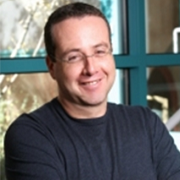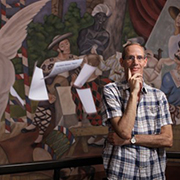Dr. Ben Maoz new winner of the ERC Starting Grant
Congratulations on this achievement
Dr. Maoz is a new faculty member in the Department of Biomedical Engineering and the Sagol School of Neuroscience at Tel Aviv University. He returned to Israel after completing his postdoctoral fellowship at Harvard. His research develops a new method for studying human physiology, focusing on the brain: "Organs-on-a-Chip" (OOC). These provide a conceptually new direction as organ functionality is mimicked in a microfluidic chip by using human cells. This concept enables us to tackle fundamental questions in human physiology without the need for human or animal experimentation.
Dr. Ben Maoz is a new faculty member in the Department of Biomedical Engineering, and Sagol School of Neuroscience at Tel Aviv University. Dr. Maoz did his Ph.D in Chemistry at Tel Aviv University under the supervision of Prof. Gil Markovich. He returned to Israel after completing his postdoctoral fellowship at the Wyss Institute at Harvard University at the lab of Prof. Don Ingber and Prof. Kit Parker.
His research develops a new method for studying human physiology, focusing on the brain: "Organs-on-a-Chip" (OOC). These provide a conceptually new direction as organ functionality is mimicked in a microfluidic chip by using human cells. This concept enables us to tackle fundamental questions in human physiology without the need for human or animal experimentation.
In this ERC project, known as SweetBrain, he will focus on the fundamental question, of how high glucose levels may lead to neuronal disfunction. Glucose oxidation releases ATP, the energy that fuels cell activities. Critical for cellular functions, glucose homeostasis is disrupted in disease conditions like diabetes. Increasing evidence suggests that high levels of blood glucose (hyperglycaemia) disrupt neural cell function and may be involved in neurodegenerative diseases. The neurovascular unit (NVU) is command and control for the brain's supply of and demand for oxygen and nutrients. It includes the blood-brain barrier of endothelial cells and tight junctions of the blood vessels as well as nervous system cells. SweetBrain is studying the NVU in pioneering organ-on-a-chip systems to investigate whether high glucose alters vasculature metabolism, which in turn causes neuronal dysfunction. Insight into brain metabolism could help protect the brain from hyperglycaemia.
More information on the MaozLab can be found in:
And his publication list:
https://www.maozlab.com/publications





